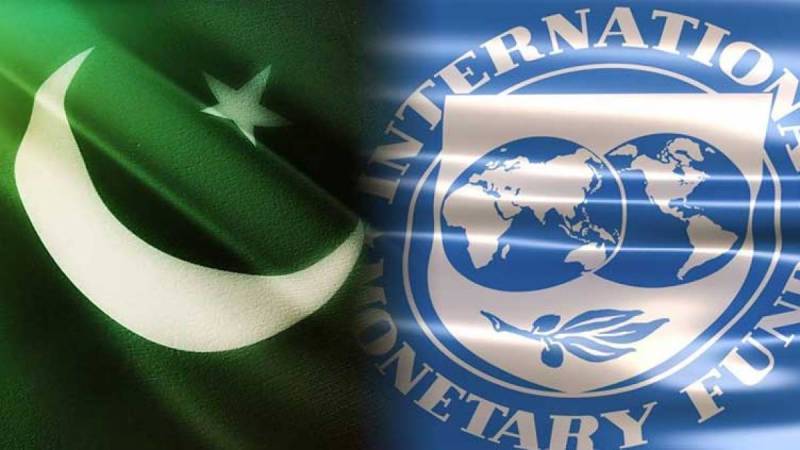
Pakistan's persistent reliance on the International Monetary Fund (IMF) for financial assistance has become a defining feature of its economic trajectory. On 25 September 2024, Pakistan secured its 25th IMF bailout, a $7 billion package, including an immediate release of $1 billion. While these programmes have provided essential short-term respite, they have failed to address the underlying governance and structural issues that continue to hinder Pakistan's long-term economic growth. This raises the question of whether the IMF can shape Pakistan's economic governance or whether the country is trapped in a cycle that necessitates a more radical approach.
Pakistan has a long history with the IMF dating back to the 1950s when the government first sought financial assistance. Over the years, Pakistan has frequently turned to the IMF in the face of fiscal crises, balance-of-payment issues, and rising external debt. The IMF has played a critical role in avoiding economic challenges, stabilising the currency, and raising foreign exchange reserves. These short-term stabilising actions have been crucial in helping Pakistan gain some semblance of financial stability.
However, this pattern emphasises how important it is to deal with the underlying issues causing Pakistan's economic instability. Significant growth prospects are presented by agricultural reforms and industrialisation advancements but recurrent crises have been exacerbated by natural disasters, political instability, and security concerns. In addition to offering short-term respite, IMF interventions can serve as a springboard for resolving more serious structural problems and opening the door to sustained economic growth.
The IMF's conditions primarily emphasise austerity measures, such as privatisation, higher taxes, reduction in subsidies, and fiscal deficits, to stabilise the economy. While these strategies can reduce spending and encourage fiscal discipline, they have a significant impact on socio-economic landscape.
Privatisation, with the IMF program assisting in guiding policies toward it, can strengthen sectors as evidenced by the success of PTCL's privatisation. This transition, fueled by deregulation and liberalisation, did not require taxpayer funds and can serve as a model for other sectors. This showcase that, if successfully implemented, a systematic privatisation strategy in Pakistan could improve efficiency and address fiscal concerns.
The IMF can no longer be viewed as a panacea for Pakistan's economic problems. While its loans give temporary relief, they are hardly a long-term solution
Additionally, the IMF's emphasis on raising taxes and curbing subsidies, while intended to address budget deficits, has an indirect impact on key sectors like education, healthcare, and social protection. By raising taxes and eliminating subsidies, the overall economic burden increases, resulting in lower household income and higher living costs. This leads to increased demand for public services in these areas; however, the government has less budgetary space to address these requests due to broader fiscal limitations imposed by these policies.
Another aspect of IMF's engagement with Pakistan is its emphasis on the agreement of governance reforms, notably in combating corruption and enhancing public sector government management. While these reforms are critical, they are often inadequately implemented due to long-standing barriers within Pakistan's political and governance structures.
The IMF's conditions also emphasise anti-corruption measures and greater institutional transparency, and they are only viable if there is accountability in the governance structure. Moreover, without significant changes in Pakistan's political dynamics by granting more inclusive decision-making procedures, the efficacy of these reforms would remain limited.
The expectation that Pakistan's current IMF program will be the last reflects a broad aspiration for economic stability and self-reliance. While this optimism is commendable, it reflects a desire for change, which goes hand in hand with addressing the underlying reasons. The IMF’s interventions are insufficient to break the cycle of economic dependence. Meaningful progress requires structural reforms that go beyond fiscal stabilisation to address the underlying causes of the country's economic and governance issues.
The IMF can no longer be viewed as a panacea for Pakistan's economic problems. While its loans give temporary relief, they are hardly a long-term solution. Pakistan must shift towards a sustainable economic paradigm that does not rely on external bailouts. This necessitates fundamental political and economic changes, such as strengthening institutions, ensuring transparency, combating corruption, and fostering a climate conducive to investment and growth. This involves increasing transparency, boosting human capital development and ensuring that economic policies benefit all segments of society, rather than a few.
Pakistan's route to economic stability is lengthy and challenging. Understanding the constraints of IMF bailouts is critical. Pakistan can commence its journey toward a more sustainable future by implementing a national reform plan. This is a need to look beyond the bailouts and promote economic growth driven by Pakistan's ingenuity and resilience. Meanwhile, citizens must also play an active role by demanding accountability, encouraging transparency, as well as supporting reforms that benefit the entire country.

